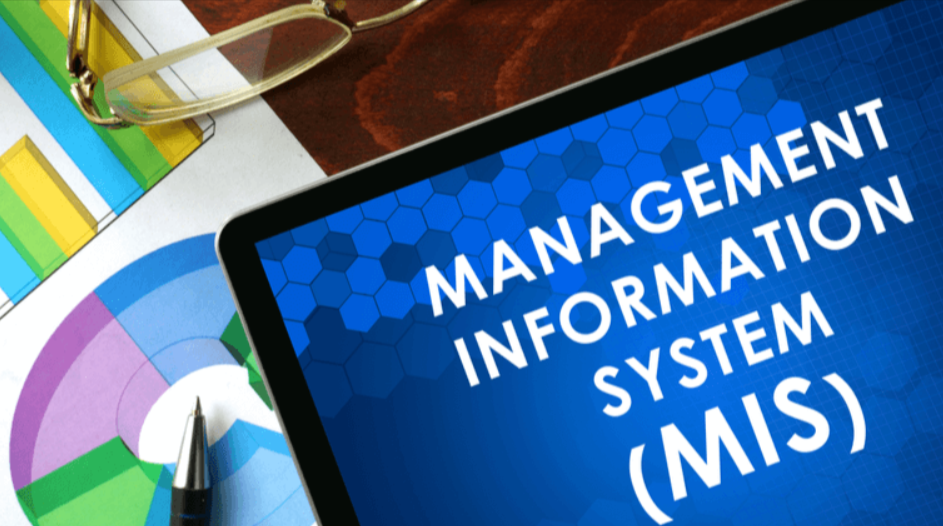Like the name suggests it is obvious that the term Management Information System or MIS is a part of managing information or something like that. Right? You’re on the right road, and it’s actually an instrument implemented to control the flow, analyze or present information which in turn aids in the process of making decisions for an organization or business. If you’re looking to know more about the good and not too great concerning these MIS system, continue in the next article. We will go through the primary benefits and drawbacks that come with Management Information Systems, so we’ll get started.
Advantages of MIS
1. Supercharging Decision-Making
Okay, let’s get right into the ways that MIS transforms your business’s decision-making process. It is evident that the primary purpose of management information system (MIS) can be to collect useful information from various sources and then present the information in a readable format. The aim here isn’t simply the accumulation of data, but the detection early of trends issues, trends, and the best strategies, you are aware of?
2. Maximizing Effectiveness To the Max
Another obvious and significant benefit of MIS? Simply stated, if you’ve got MIS working the efficiency of your business will increase dramatically. Data collection, processing of numbers, and the generation of reports are instances of tedious tasks MIS automates to help save lots of time. You’ll be grateful for that down the road. As you’ve probably guessed knowing there are fewer errors and greater consistency, your team can focus on the essential issues.
3. Raising the Level of Communication
Look, with these systems, it’s not only the data management feature that shines most You’ll also enjoy the enhanced communication aspect of it, too. It’s not difficult to grasp that once all your information is in one location departments can stop fighting over who gets what data and get to work in a team, right?
4. Mastering Data Management
Are you able to access the data? MIS confirms that the data is not inactive. By using MIS the data you store is transformed from messy to organized by putting it all into one location, you’ve heard? Take the information you gather into account when making those crucial judgements, as it’s all about access speed and data integrity that is rock-solid. It’s also a way to reliable, transparent reporting which is essentially the same thing: goodbye to catastrophes involving data.
5. On-Point Performance Tracking
Another thing that an MIS system can do really well is the tracking component, that is extremely useful in getting a sense of how your business doing, right? Sure, with MIS, it is possible to identify patterns and weaknesses in information such as production and sales statistics. This is how supervisors get the chance to set guidelines, boost efficiency, and give the appropriate praise.
6. Optimizing Resources
For any of your needs in managing resources, MIS is the one to reach out to. The ability to predict your next move is an integral part and not just tracking your resources. Is next quarter’s production ramp-up necessary? Your assets were already assigned to MIS after they have crunched the numbers. If you’re looking to keep ahead of your market at all times while reducing costs then this is the way to go about it.
7. Strategic Planning Power-Up
The concept of “strategic planning” is more than just a phrase that is used in executive sessions in the case of MIS. In reality, when you have data on the activities of an company and MIS can provide the data It’s much more straightforward to plan your activities and develop the best strategy to increase the rate of growth in the future. It’s a way of looking at it.
Disadvantages of MIS
1. That Pricey Initial Setback
You have to spend a significant amount of money immediately to purchase the software, tools, and then teach your staff how to utilize it. The money is constantly going to waste through regular updates to your system and the normal troubleshooting. These expenses aren’t only a problem for small companies that are monitoring their budgets They could also be big deal-breakers.
2. It’s a Bit Complex
A MIS doesn’t come with a device that you connect and then utilize, so you’ll need to be aware of plenty about technology in order to be able to use it. If your staff isn’t up to date, they’ll need to be quick in learning and be required to shell out a significant amount for education. There’s a higher chance that there will be a problem with an approach that’s too complex, which could result in problems or even errors that could cause issues later on.
3. Tech-Dependent Much?
If you are dependent on your MIS system, your tech could be able do whatever they’d like. Systems that crash or software that is outdated could cause your business to stop at any point. Additionally, cybercriminals are more likely to be a target if you depend heavily on technology which is a concern in this age of technology that we live in, isn’t it?
4. Not Everyone’s on Board
If you decide to switch from an MSI, you existing procedures will need to be altered and let’s face it there will be some who don’t appreciate the new system. When your team gets involved to fight back, the entire process could become slowed down, turning what is supposed to be a seamless change into a battlefield that you won’t enjoy it in the least. There is a way to get around this.
5. Garbage In, Garbage Out
Remember that the data you provide to a MIS is what allows it to function. If you don’t get it right, your input, the results will be the same and that’s the reason we mentioned that if you dump the trash in it, it’ll certainly discharge the trash as a result.
Conclusion
This is all for right now. You’ll notice that it’s a bit necessary nowadays to have an Management Information System in place which is the reason you will find a lot of companies that are using MIS. However, the efficiency of MIS is largely dependent on how it’s being used and what major decisions are being taken based on the use of data gathered from this system. It is the way you assess its efficacy.




